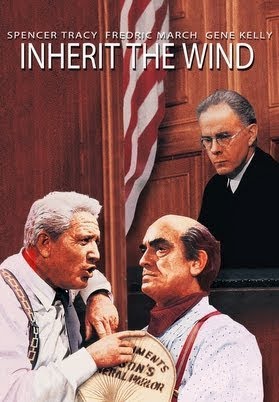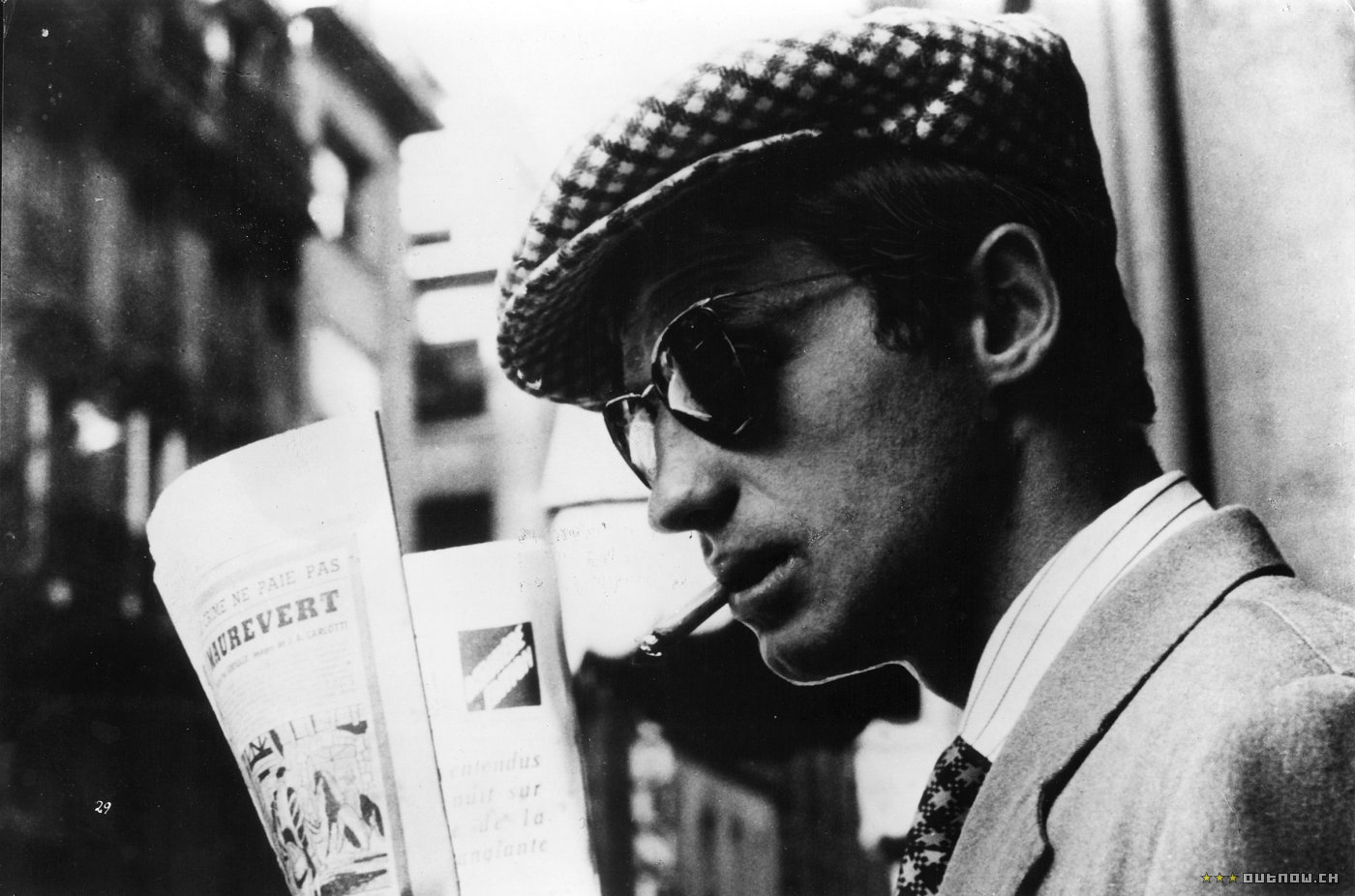When I first watched Through a Glass Darkly I didn't know about the Silence of God trilogy. I perceived it to be more about the human mind, but it seemed to me as if there was something Bergman left unsaid in the movie. After watching Winter Light I could understand what he left unsaid in the first episode of the trilogy. The Silence was about asserting the truth that was expressed in Winter Light. The Silence of God trilogy is Bergman's personal rebellion against his troubled religious upbringing.
These three films deal with reduction. Through a Glass Darkly– conquered certainty. Winter Light – penetrated certainty. The Silence – God's silence – the negative imprint. Therefore, they constitute a trilogy.
-- Ingmar Bergman.
More than being a personal statement this trilogy also depicts how Bergman changed as a director. When I was watching The Silence I could understand how both Cries and Whispers and Persona had touches of the former. In his review of The Silence Richard Broudy aptly writes, "The Silence is in part a prelude to later films, in which Bergman has shifted his focus from God to people, from theology to psychology."
1. Through a Glass Darkly (1961)
Through a Glass Darkly deals with the idea of God's Silence implicitly.On the forefront it does a brilliant job of portraying different aspects of the human mind. The story is about the events that happen in a day in the lives of four people who are on a vacation on an island. Bergman has always been a master in portraying interpersonal relations. In this film each character acts as a medium to understand the other three.
The film deals with the musings of a schizophrenic girl who has just been released from a mental institution but is not fully cured, the frustration of her husband who loves her dearly but feels utterly helpless knowing the fact that she is incurable, the thoughts of her emotionally repressed brother, and the guilt and inner voids of her father.
Martin (Max von Sydow) is presented as a loving husband. But his frustration is also approaching its zenith. He knows he can only be a witness to his wife's gradual and tormenting end. He yearns for some love from Karin, but she fails to give any.
David (Gunner Bjornstrand) is a father who is highly guilt ridden because he deserted his children to pursue his writing career. He tries to escape from all the realities of the world but the love for his family draws him back. This movie has some beautiful dual encounters which allows the viewer to study the concerned characters. In such an encounter between Martin and David we get to know the inner voids and doubts of David.
Karin (Harriet Andersson) is stuck between two worlds. She hears voices, she is confused between her reality and her dreams. She only confides in her brother about her feelings. She hears voices through a wall (used in both literal and metaphorical sense). Her other world is a place where she escapes to find peace, a place where people are waiting for God's arrival but are not anxious about it. In the later part of the film when she possibly seduces her brother into incest (the film only implies it) on the request of the voices she decides to choose between one of the worlds. She is aware of her illness but thinks that some part of her dreams is also a part of her reality.
In the climax of the film Bergman presents the cruel stony face of God through Karin. Bergman describes God as a spider monster, a term he also uses in Winter Light.
Minus (Lars Passgard) is a teenager who is confused about his own feelings. He is emotionally repressed, he wants to get it out in front of his father but has been unable to do so. At last when he does so after his sexual encounter with his sister his father gives him the much needed strength. He wants a proof of God. His father says that the thought of "God and love being the same helps him in his emptiness and dirty despair". Bergman implies how trying to find God in any form other than love will lead you into a life of doubt and pain, a thought he asserts in Winter Light.
2. Winter Light (1963)
Winter Light is the most personal movie from Bergman's point of view. Roger Ebert writes that after Bergman's death the first film he could remember was Winter Light. This film is a head on encounter of Bergman with his personal realisations. The Wikipedia article about Bergman mentions that despite his strict Lutheran upbringing he had lost his faith at the age of eight but could only come to terms with it while making Winter Light.
The protagonist is a Pastor (Gunner Bjornstrand) who is plagued by serious doubts about his religious beliefs he has built his life on. Having lost his wife he is angry with God. He has started to question the idea of a benevolent God. When Jonas (Max von Sydow), a man on the verge of committing suicide, comes to the pastor for help he fails to give any advice. On the other hand he says that he thinks he is a wretched clergyman. Through the pastor's self doubts Bergman expresses his anger against organised religion. In the later part of the film Bergman even points out how even Jesus felt God's Silence in his last minutes. Although this film seems totally theological it actually portrays man's futility when he tries to find the ultimate truth.
I refused to accept reality. My God and I resided in an organized world where everything made sense.
-- Pastor Tomas
Marta, a schoolteacher, (Ingrid Thulin) is deeply in love with the pastor. She wants to devote her life to her love. But the Pastor wants to get rid of the affection. He doesn't want anyone to occupy his wife's position. He wants to find the truth, the reason behind God's Silence. This film clearly asserts how the absence of love can drive any man into the dark trails of self doubt and despair.
3. The Silence (1963)
The Silence is the most mature film among the three films. Bergman plays a masterstroke by using a world devoid of theology to portray God's Silence. This film originally titled as God's Silence is surely a movie ahead of its' time. The movie bagged quite amount of controversy because of its' explicit sexual content. The title of the movie surely serves a dual purpose as the movie has very less dialogue.
The Silence deals with the emotionally strained relations between two sisters Ester (Ingrid Thulin), Anna (Gunnel Lindblom) and her son Johan (Jorgen Lindstrom). Anna and Johan are travelling with Ester who is suffering from a lung disease. They end up in a city where no one speaks any of the common European languages.
The film portrays the cold relation that exists between the three characters. Anna is a frivolous young woman who tries to find joy in fulfilling her bodily needs of hunger and sex. Ester is an educated woman who finds joy in intellectual pursuits. She finds sex disgusting and only a matter of hormones and secretions.
Johan being trapped in the utter loneliness roams around the long corridors of the hotel. The cinematographer brilliantly captures these moments of loneliness using long shots. Desperate for company he tries to befriend anyone he sees in those corridors. When he finds out that his mother is sleeping around with strange men he goes to his Aunt Ester who gives him his much needed company. There is a scene where Johan enters Ester's room to find her sleeping. His attention is drawn by a tank that is patrolling the road. The camera focuses on the tank for quite some time. It seems Bergman wanted to emphasise the horror of loneliness in a child.
Ester being ill is taken care of by the hotel's old manger. Although he can't speak German or English he feels a connection with both Ester and Johan. He even shares his story with Johan through some old pictures.There is a scene where Ester confronts Ann while her sexual encounter. Ann spills out the hate she has for Ester. Ester being the more conserved and moral person is an antithesis of Ann. But Ester loves Ann despite her actions which are in direct conflict with Ester's principles. Ann doesn't understand her and even wants her dead. Ann leaves the hotel with Johan deserting her ill sister.
Throughout the trilogy Bergman equated God with love. In The Silence he shows how the tiniest bit of love and affection can bring peace even in the times of utter loneliness. Within a day Johan and his aunt Ester grow a bond which is stronger than the bond with his mother.
The film is both a directorial and a cinematographic marvel. Sven Nykvist, Bergman's long time cinematographer has done a fantastic job of capturing all the expressions of the captures with bold use of strong light and darkness. Since the film has very less dialogue it was a very difficult job to portrary most ideas through visuals and Nykvist surely does it with utmost perfection.
This has been a long post. I think I should conclude with the idea that Bergman mostly wanted to show.
There has been no direct proof of God's existence. If anything the day to day events of our lives assert is God's non-existence (the atheist version) or God's Silence (the theist version). I think Bergman wanted to say that the pursuit of a higher truth or God is not an easy path. We don't know what is at the end of such a road. But one thing is for sure that absence of love in one's life will surely bring misery and even the tiniest presence of love can bring endless joy.









